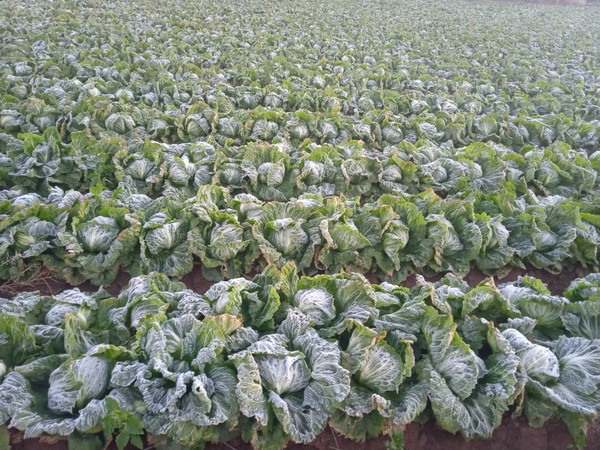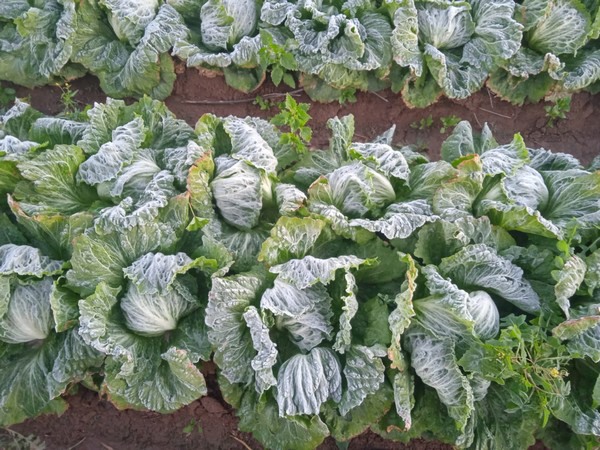In recent days, temperatures have fallen again in southeastern Spain, after daytime temperatures had risen for just over a week since mid-January. Frosts are back and the recovery of the vegetable supply in the European markets is slowing down.
"We are in February and it is normal to have cold days, even with frost in certain productive areas. The problem is not so much the frost, but how long it lasts," said Cecilio Peregrín, Corporate Director of Primaflor, one of the leading companies in the production of leaf vegetables and fresh-cut and pre-prepared convenience food mixes in Spain, with around 200,000 tons per year.

"It is true that the supply has been recovering, but not at the desired pace. We have not yet reached the break-even point in the production cycles, which is going to make the recovery slow. In any case, the days are longer and that will also help," he said.
"The productions were already well ahead of schedule because of the very high temperatures recorded during November and December. In mid-January, temperatures were back to the usual levels for that time of the year, and the cycles began to adjust, which has led to the current issues with the supply," said Cecilio Peregrín.
"We are seeing reductions in the programs of up to 50% in some weeks, without any specific crops being more affected, although obviously, given the volume handled, the reduction in the supply of iceberg lettuce is having more of an impact," he says.
For his part, Carlos Olmos, Commercial Director of Primaflor, expects the production to go back to normal in a couple of weeks. "Predictably, in the second half of March we will already have a normal supply for all products. Until that time, we expect it to increase progressively."
"While the supply has been limited, the production has not stopped. There have been notable reductions in some specific weeks, but we have not stopped supplying the customers with whom we have programs. Perhaps the entire value chain should be questioning how this supply has been managed at destination," says Cecilio Peregrín.

In view of this situation, the prices of pre-prepared convenience products have had to be adjusted. "Processing costs have increased, mainly due to the rise in the prices at origin of raw materials. Let's not forget that in December we had to destroy millions of pieces due to the high temperatures and the early ripening of lettuces. To this we must add the low yields in February due to the low temperatures and the supply shortages, which led to increases that have not yet been reflected in the final prices paid by the consumer, and which growers and processors have had to assume," says Carlos Olmos.
"We at Primaflor are making an effort to meet our commitments and we are working to bring the programs 100% back to speed as soon as possible," said Cecilio Peregrín. "Thanks to our contingency plans, we have managed to guarantee the availability of some of our products and minimize the drop in the supply of others, although in situations like the one we have experienced over the last three months it is difficult to tackle the impact of the weather on the fields," he says.
 For more information:
For more information:
Primaflor
Avenida Cecilio Peregrín, 2 – 04640.
Pulpí (Almería). Spain
T:+34 950 464 011
mimaflor.es
